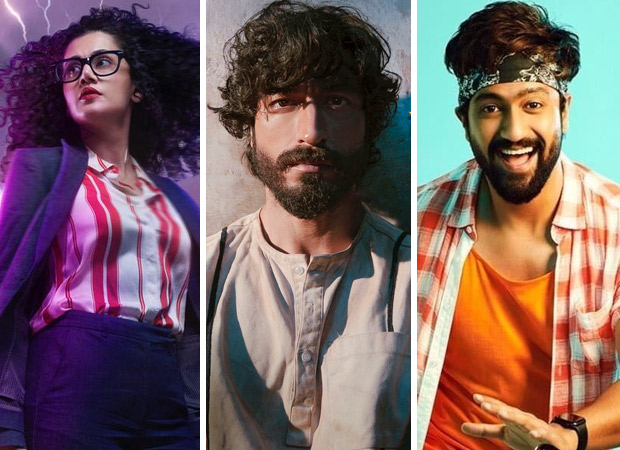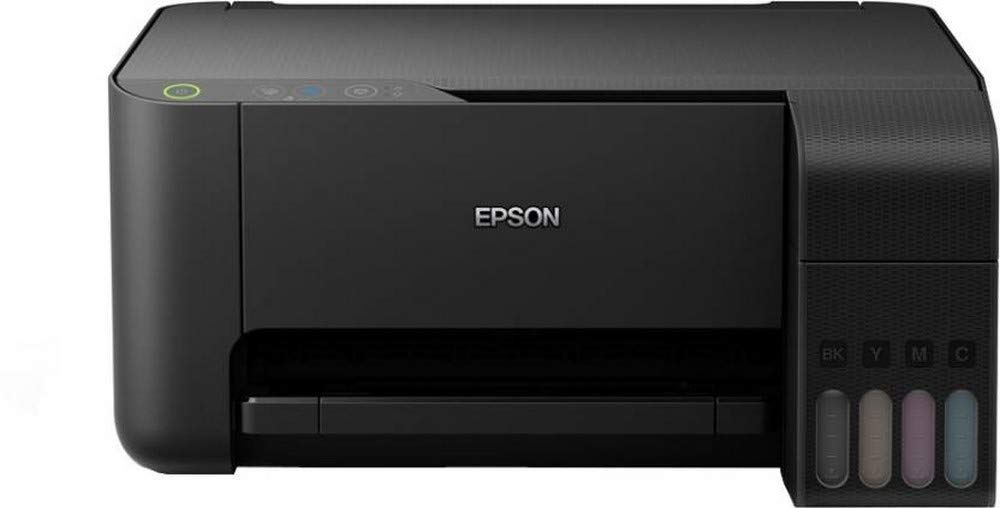The Friday gone by saw the release of more than 10 Hindi films. Except for Doctor G, the rest of the films struggled to find audience even in single digits despite several screenings. A lot of viewers skipped watching these films, even if they were mildly interested, citing that these flicks were fit for OTT viewing. And indeed, a few of these films would have gotten decent viewership had they been released directly on streaming platforms. Then why are the producers of these movies taking the risk of releasing this film on the big screen and thereby adding to their costs needlessly? This is because releasing all kinds of films online directly is so 2020. In 2022, the rules have changed, and the producers are feeling the heat.

From ‘Say No to direct digital’ to ‘OTT release, hell yeah’
The trend of releasing a film directly online was unheard of before the pandemic. The Sushant Singh Rajput-Jacqueline Fernandez starrer, Drive, was the first big Hindi film to release directly on the OTT platform Netflix, on November 1, 2019. The film got a poor response from the audiences and critics alike and even a layman knew beforehand could guess that it was being directly released on digital as it must be a weak product. Bollywood Hungama, in fact, had reported 10 days after Drive’s release that actors and even directors wanted to add a ‘no direct digital release’ clause in their contracts to avoid a repeat of the Drive fiasco.
But six months later, all changed. Due to the imposition of the lockdown, producers were compelled to release their films directly on OTT. This time, the actors didn’t protest.
Gulabo Sitabo, starring Ayushmann Khurrana and Amitabh Bachchan, was the first major film to take the plunge. It premiered on Amazon Prime on June 12, 2020. Soon, several films jumped on the bandwagon like Dil Bechara, Shakuntala Devi, Lootcase, Gunjan Saxena: The Kargil Girl, Khuda Haafiz, Sadak 2, Dolly Kitty Aur Woh Chamakte Sitare, Ginny Weds Sunny, Laxmii, Ludo, Chhalaang, Durgamati, Torbaaz, Coolie No 1 etc.
The trend continued in 2021 when theatres were shut for most parts of the year. Hence, films like The Girl On The Train, Pagglait, The Big Bull, Hello Charlie, Sardar Ka Grandson, Sherni, Haseen Dillruba, Toofaan, 14 Phere, Hungama 2, Mimi, Shershaah, Bhuj: The Pride Of India, Bhoot Police, Shiddat, Rashmi Rocket, Sardar Udham, Sanak, Hum Do Hamare Do, Bob Biswas, Atrangi Re, etc also skipped theatrical release. Films like Salman Khan’s Radhe and Khaali Peeli had a hybrid release.
2020-2021 digital era vs 2022 digital era
In the initial phase of 2022, Looop Lapeta, Gehraiyaan, A Thursday, Love Hostel, Jalsa, Sharmaji Namkeen and Dasvi were the only films that had a direct digital release. Dasvi was released on April 7, 2022 and the next significant Hindi film to get an OTT release was Forensic, on June 24, that is, more than two-and-a-half months later. After this film, Janhvi Kapoor-starrer Good Luck Jerry and Akshay Kumar-starrer Cuttputlli were the only movies that were able to directly stream online.

So, what exactly happened? A source told Bollywood, “The party is over, simply put. In 2020 and 2021, a lot of films took advantage of the fact that streaming platforms were buying films and paying huge amounts. The makers were relieved that they not only recovered their costs but also made a profit, without going the theatrical route. Later, once the cinema halls opened, many producers still wanted to continue releasing their films online. They had tasted blood, after all.”
The source continued, “But soon, the money dried up or rather, the platforms realized that paying them such a huge amount for their films is not helping them much. And the biggest problem with this arrangement was that the onus of promoting the film and making the viewers aware of the existence of the product fell on the digital platforms. Hence, they felt that these films should rather release first in cinemas. That’ll compel the producers to promote it. Then, the giants can premiere these films on the platforms. Since these films have already been promoted, audiences already know about it and this makes the job of digital giants easy.”
Experts speak up
Producer Anand Pandit told Bollywood Hungama, “India has a population of around 130 crore people. Out of these, 2 crore or a maximum of 3 crore people watch a film in theatres. The word of mouth generated by such a huge number of viewers gives the platforms the much-needed promotion, for free!”
He continued, “For example, everyone knew that Akshay Kumar-starrer Raksha Bandhan was released, regardless of whether they have seen it or not. This is because the producers promoted it extensively. Meanwhile, Akshay Kumar’s Cuttputlli was directly released online. Woh kab aayi aur kab gayi, kisi ko pata bhi nahin chala. So, this is a business call the platforms have taken. There’s nothing wrong in that.”
Anand Pandit further said, “You will not see Amazon or Disney+ Hotstar doing much publicity for films which has already released in theatres. They don’t need to as the producers have already done the needful. If they buy say 24 such films, they’ll probably buy half the number of movies for direct digital releases. It was just that during the pandemic, even they were looking for content. They saw it as a golden chance to make people used to OTT viewing. That’s why they took films for direct OTT release. Now, they have gone to their original policy.”
But isn’t this original policy hurting the producers? Anand Pandit stated, “Baarish mein aap umbrella leke nikle, toh samaj sakte hai. Lekin bearish ki season khatam hone ke baad bhi aap umbrella khol ke jaana chahta ho, toh fir yeh un producers ki problem hai!” He signed off by saying, “You have to work on your strength rather than somebody’s weakness”
On this, trade expert Komal Nahta, stated, “The digital channels have realized that they have spent too much on promotions if the film does not release theatrically. If it releases theatrically, it is believed and assumed that the producer would have done some basic spending on promotions and marketing. So, to that extent, the (OTT giants’) expenditure and their job reduce. This is the main reason why they insist on theatrical release after which they pick up films.”
He added, “Secondly if they premiere their film on their platforms, it means that they must pay a higher price. They have suffered such huge losses in recent times that they don’t mind paying lesser for late releases. At least, their risk reduces.”
When asked if the producers are suffering, he replied, “Yes they are. At the box office, there’s a compulsion of getting a respectable first day and first weekend numbers. So a premiere on OTT came as a boon for them as they were not bothered. The platforms also realized that they are not giving us good content. So, they felt that let them release their films theatrically and they can buy them at a lower price.”
Komal Nahta also said that “A lot of producers planned that ‘Hamari film OTT pe aa jaayegi aur paise mil jaayenge. But it’s not easy to make money.”
Token release in cinemas for many films
The source confessed, “Some films are getting a token release, that is, they are released with very minimal promotion. Sirf naam ka release hai. But the OTT platforms are okay as somewhere, the word spreads once a film is out in cinemas and their job gets easier. For instance, Toolsidas Junior had a very limited release and its collections were negligible in cinemas. But on Netflix, it got a huge viewership and was one of the top 10 films in as many as 14 countries. After winning the National Award, it further found an audience.”
A staffer from a multiplex in Mumbai said, “The streaming giants keep an eye as to whether the film they have acquired is completing at least one week run in cinemas. After all, what if some producers put up a film for just a day or two in cinemas and then discontinue? I remember the producers of Ganesh Acharya’s Dehati Disco had requested the top management to play the film for one full week. That week, Top Gun: Maverick and Bhool Bhulaiyaa 2 were doing very well. But we had no choice but to keep one show of Dehati Disco though it was getting no audience.”
The source then said, “There were films like Hurdang, Nikamma, Operation Romeo, Jahaan Chaar Yaar etc which also had to release in cinemas first though their producers hoped for a direct OTT release. Then there were mid-sized films which were well promoted such as Dobaara, Khuda Haafiz: Chapter 2 – Agni Pariksha etc. When the direct-to-OTT deal couldn’t happen, the makers went all out and promoted it well hoping it’ll find an audience in cinemas Sadly, that didn’t happen.”

The cost factor
All is not lost though. The OTT platforms are ready to buy films that want to skip theatrical release, but the prices are not insane anymore. In August 2022, Bollywood Hungama reported that the digital and satellite rights of Karan Johar’s upcoming production, Govinda Naam Mera, starring Vicky Kaushal, Kiara Advani and Bhumi Pednekar, has been sold to Star Network for Rs. 62 crores, which is also the budget of the film. Meanwhile, last year, the rights of a slightly smaller film, Bhoot Police, starring Saif Ali Khan, Arjun Kapoor, Yami Gautam Dhar and Jacqueline Fernandez, was sold for Rs. 60 crores. The film’s budget was Rs. 40 crores, and the producers, Tips, made a neat profit of Rs. 20 crores.
The source said, “It won’t be wrong to say that last year, Govinda Naam Mera would have fetched Rs. 75-80 crores. And had Bhoot Police released this year, it might have not got Rs. 60 crores and probably would have settled for a no-profit-no-less deal, just like Govinda Naam Mera.”
An industry expert also claimed that Kartik Aaryan-starrer Freddy is expected to directly premiere on Disney+ Hotstar and it hasn’t got the price that the producers had hoped for.
The streaming originals
Then there are films which are bankrolled by the streaming giants themselves. Examples include Alia Bhatt-starrer Darlings, Riteish Deshmukh-Tamannaah Bhatia starrer Plan A Plan B Kartik Aaryan-starrer Dhamaka and Diljit Dosanjh-starrer Jogi (Netflix), Madhuri Dixit-starrer Maja Ma (Amazon Prime Video), Tamannaah Bhatia-starrer Babli Bouncer (Disney+ Hotstar) etc.
The source explained, “Netflix has several original films in their pipeline like Zoya Akhtar’s The Archies, Vishal Bhardwaj’s Khufiya, Rajkummar Rao’s Monica O My Darling, Sanya Malhotra’s Kathal etc and had announced them at an event a few months back. These projects are greenlit after keeping into consideration the budget, the target audience etc and mostly making sure that it’ll turn out to be a profitable venture for them. With films that were meant for theatrical release and for whom going on OTT is an afterthought, the platforms have no say in the script, commercials etc due to which they prefer not to buy their rights.”
To conclude, the trend is here to stay
Most of the films will have to release in cinemas first. The source signed off by remarking, “In the early days of the pandemic, certain celebs and filmmakers were predicting how OTT is the future. This year, they are suddenly talking about the magic of the big screen! This is simply because OTTs have turned their backs on them. They feel helpless as many of them have made mediocre content and don’t know how to make a profit out of it. The solution is simple – make films that’ll blow away viewers. Then these films will have a chance not just in cinemas but also on streaming giants.”
Also Read: Ranbir Kapoor, Alia Bhatt starrer Brahmastra finally gets an OTT release date: Reports
from Featured Movie News | Featured Bollywood News - Bollywood Hungama https://ift.tt/YDdVljO
via DHSTU






























No comments:
Post a Comment